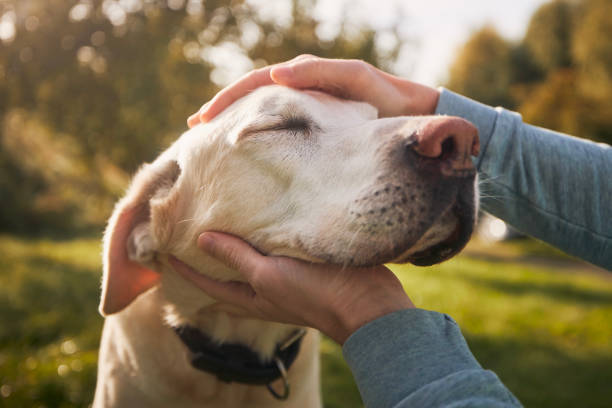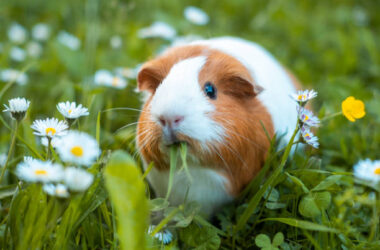In the tapestry of life, pets weave an inseparable thread, their presence bringing warmth, joy, and unwavering companionship. As we welcome them into our homes and hearts, we embark on a shared journey, one that spans the seasons of life, from playful youth to the serene golden years. “Senior Pets: Providing Love and Care in Their Golden Years” is an exploration of this beautiful phase in the lives of our beloved animal companions, a journey that celebrates the wisdom, grace, and enduring love that senior pets bring into our lives.
With each passing year, our pets age gracefully, and just as we provide care and attention to their needs in their youth, their senior years beckon for a different kind of care and devotion. In this exploration, we will delve into the unique joys and challenges of caring for senior pets, understanding the physical and emotional changes they experience, and discovering the profound rewards that come with providing love and support during this precious phase of their lives.
The golden years are a testament to the enduring bonds we share with our pets, a time when the depth of our connection is illuminated by the wisdom etched into their fur and the love that has stood the test of time. Join us on this journey of love, compassion, and respect as we navigate the beautiful world of senior pets, offering them the care, comfort, and happiness they deserve as cherished members of our families.

Understanding the needs of senior pets
Understanding the needs of senior pets is a compassionate and essential aspect of responsible pet ownership. As our beloved companions age, they undergo physical and emotional changes that necessitate a unique approach to their care and well-being. Recognizing and addressing these evolving needs is crucial to ensuring their comfort, happiness, and overall quality of life.
Physical Health: Senior pets often experience age-related health issues such as arthritis, diminished vision or hearing, dental problems, and a decrease in mobility. Regular veterinary check-ups become increasingly important to detect and manage these issues early. Ensuring that their diet is appropriate for their age and health status can also make a significant difference in their well-being. Some senior pets may require special diets to address conditions like kidney disease or obesity.
How To Train Your Dog: Effective Techniques For A Well-Behaved Pup
Exercise and Mobility: While senior pets may not be as active as they once were, they still benefit from regular, low-impact exercise to maintain muscle tone and joint flexibility. Gentle walks, supervised playtime, and physical therapy exercises can help keep them mobile and comfortable. It’s important to provide them with a safe and comfortable environment that minimizes the risk of slips, trips, or falls.
Mental Stimulation: Mental stimulation is just as important as physical exercise for senior pets. Engaging their minds with interactive toys, puzzles, and gentle training exercises can help keep their cognitive function sharp. Additionally, spending quality time with your pet through cuddling, gentle play, and soothing interactions provides emotional support and mental stimulation.
Pain Management: Many senior pets experience chronic pain due to conditions like arthritis or dental issues. Monitoring for signs of pain, such as changes in behavior or mobility, is crucial. Consult with your veterinarian to develop a pain management plan, which may include medications, supplements, or alternative therapies to alleviate discomfort and improve their quality of life.
Dental Care: Dental health is often overlooked but is particularly important for senior pets. Dental disease can lead to pain, infections, and systemic health issues. Regular dental check-ups and cleanings, as well as at-home dental care, can help maintain their oral health.
Comfort and Support: As pets age, they may require additional comfort and support. Provide soft bedding and cozy places to rest, especially if they experience stiffness or discomfort. Ramps or steps can aid in accessing higher surfaces like beds or sofas. Ensuring their environment is free from hazards and easily navigable is essential.

Emotional Well-Being: Senior pets may experience changes in behavior or exhibit signs of anxiety or confusion. Providing a stable and predictable routine can help ease their stress. Comforting and reassuring them with gentle words and physical affection can also provide emotional support during times of uncertainty.
Regular Veterinary Care: Consistent veterinary care is paramount for senior pets. Regular check-ups can help detect and address age-related health issues promptly. Your veterinarian can also advise on appropriate preventive care, including vaccinations and parasite control, tailored to their specific needs.
In conclusion, understanding the evolving needs of senior pets is an expression of love and compassion. As our faithful companions age, their needs change, and by providing them with the care, attention, and support they require, we honor the enduring bond we share with them. Senior pets hold a special place in our hearts, and their golden years are an opportunity to reciprocate the love and joy they’ve brought into our lives with unwavering care and devotion.
Providing a comfortable and safe environment
Providing a comfortable and safe environment for senior pets is paramount to their well-being and quality of life. As our beloved companions age, their physical abilities and sensory perception may change, making it essential to adapt their living space to accommodate their evolving needs.
Soft and Supportive Bedding: Offering a soft and supportive place for your senior pet to rest is crucial. Orthopedic or memory foam beds can provide relief for achy joints and ensure a comfortable night’s sleep. Place these beds in warm and draft-free areas, away from high-traffic zones, to provide a quiet and peaceful sleeping environment.
Accessible Living Areas: Make sure that your pet’s favorite spots, such as their bed, food and water dishes, and litter box (for cats), are easily accessible. For pets with mobility issues, consider using ramps or steps to help them reach higher surfaces, like sofas or beds, without straining themselves.
Safety Measures: Senior pets may be more prone to falls or accidents. To minimize these risks, remove obstacles and clutter from their pathways. Secure rugs and carpets to prevent slipping and consider using baby gates to restrict access to areas that could be hazardous.
Temperature Control: Senior pets can be more sensitive to temperature changes. Keep your home at a comfortable temperature and provide cozy blankets or heating pads to help them stay warm during colder months. Ensure that they have access to shade and water during hot weather to prevent overheating.
Well-Lit Spaces: Diminished vision is common in senior pets. Adequate lighting can help them navigate their surroundings more easily. Consider adding nightlights in hallways or using floor lamps with adjustable lighting levels to accommodate their changing visual needs.
Bathroom Accessibility: For senior dogs, bathroom breaks can become more frequent. If possible, create a designated outdoor area that is easily accessible to prevent accidents inside the house. For cats, ensure that litter boxes are conveniently located and kept clean to encourage regular use.
Noise Reduction: Older pets may be more sensitive to loud noises or commotion. Creating a calm and quiet environment by minimizing loud sounds, such as vacuum cleaners or loud music, can reduce stress and anxiety.
Regular Safety Checks: Conduct regular safety checks of your home to identify any potential hazards or changes needed to accommodate your senior pet’s needs. Consider consulting with your veterinarian or a professional pet sitter for advice on creating the safest environment.
By making thoughtful adjustments to your home environment, you can ensure that your senior pet’s golden years are filled with comfort, security, and ease. These modifications not only enhance their quality of life but also demonstrate your commitment to providing them with the love and care they deserve during this special phase of their journey alongside you
Maintaining a healthy diet and exercise routine
Maintaining a healthy diet and exercise routine for senior pets is a cornerstone of their overall well-being, ensuring that they lead happy, comfortable, and active lives in their golden years. Just as with humans, senior pets require specific dietary and fitness considerations to address their changing nutritional needs and physical abilities.
Dietary Considerations: As pets age, their metabolism, nutrient absorption, and digestive processes may slow down, making it essential to adjust their diet accordingly. Consult with your veterinarian to select a high-quality senior pet food tailored to their specific requirements. These specialized diets often contain reduced levels of calories, fat, and phosphorus, and increased levels of fiber, joint-supporting supplements, and essential nutrients. Be mindful of portion control to prevent weight gain, as excess weight can exacerbate age-related conditions like arthritis and heart disease.
Hydration: Adequate hydration is crucial for senior pets. Encourage them to drink water regularly by providing clean and easily accessible water sources. If your pet has trouble reaching their water dish due to mobility issues, consider placing additional water bowls around the house to make it more convenient for them.

Exercise and Activity: While senior pets may not have the same level of energy as in their youth, regular, low-impact exercise remains important. Tailor their exercise routine to their physical abilities, which may vary depending on their health and age. Short, gentle walks, supervised playtime, and controlled activities like swimming or stretching exercises can help maintain muscle tone, joint flexibility, and mental stimulation. Ensure that exercise is age-appropriate and does not cause discomfort or exhaustion.
Weight Management: Maintaining a healthy weight is crucial for senior pets to prevent obesity and associated health issues. Regularly monitor their weight and body condition, adjusting their diet and exercise routine as needed. Consult with your veterinarian to establish an ideal weight goal and feeding plan. Weight management can significantly improve their overall health and longevity.
Joint Health: Many senior pets experience joint problems like arthritis, which can lead to pain and decreased mobility. Provide joint supplements or medications as recommended by your veterinarian to alleviate discomfort and improve joint health. Additionally, consider offering padded bedding to cushion their joints and make resting more comfortable.
Regular Veterinary Check-ups: Schedule regular check-ups with your veterinarian to monitor your senior pet’s health and address any age-related issues promptly. Routine blood work, dental cleanings, and eye and ear exams can help detect and manage potential health concerns.
Mental Stimulation: Mental exercise is just as crucial as physical activity for senior pets. Engage their minds with interactive toys, puzzle feeders, and gentle training sessions. Mental stimulation can help maintain cognitive function and prevent boredom or anxiety.
In conclusion, maintaining a healthy diet and exercise routine tailored to your senior pet’s specific needs is a fundamental aspect of responsible pet care. These practices not only support their physical health but also enhance their mental well-being and overall quality of life. By providing proper nutrition, exercise, and regular veterinary care, you can ensure that your senior pet enjoys their golden years with vitality, comfort, and the happiness they deserve.
Monitoring your pet’s health and well-being
Monitoring your pet’s health and well-being is a crucial responsibility that becomes increasingly important as they enter their senior years. Aging pets are more susceptible to a range of health issues, and regular observation, coupled with veterinary care, can make a significant difference in maintaining their comfort and quality of life.
Regular Health Checks: Routine visits to the veterinarian are essential for senior pets. These visits should include comprehensive physical examinations, blood tests, and dental evaluations. Regular check-ups help identify potential health concerns, allowing for early intervention and treatment. Your veterinarian can establish a baseline for your pet’s health and monitor any changes over time.
Weight and Nutrition: Keep a close eye on your senior pet’s weight and body condition.Consult with your veterinarian to select an age-appropriate and nutritious diet that addresses their specific needs.
Mobility and Comfort: Pay attention to any changes in your pet’s mobility and comfort. Arthritis, joint pain, and stiffness are common in older pets. Look for signs of discomfort, such as limping, reluctance to jump or climb stairs, and changes in gait. Provide joint supplements or medications as recommended by your veterinarian to improve their comfort.
Dental Health: Dental issues can cause pain and discomfort in senior pets, affecting their overall well-being. Regularly check their teeth and gums for signs of dental disease, such as bad breath, inflamed gums, or loose teeth. Dental cleanings and proper at-home dental care can help maintain oral health and prevent related health problems.
Changes in Behavior: Pay attention to changes in your pet’s behavior. Senior pets may display signs of anxiety, confusion, or cognitive decline. These changes can manifest as altered sleep patterns, disorientation, increased vocalization, or changes in appetite. If you notice any concerning behavioral changes, discuss them with your veterinarian to rule out underlying medical issues.
Vision and Hearing: Senior pets may experience changes in vision and hearing. Monitor for signs such as cloudiness in the eyes, bumping into objects, or not responding to sounds. Regular eye and ear examinations can help detect and manage these issues, improving your pet’s overall comfort and safety.

Hydration and Bathroom Habits: Ensure that your senior pet has easy access to fresh water at all times to prevent dehydration, which can exacerbate health problems. Monitor their bathroom habits for changes, as frequent urination or accidents in the house can be signs of underlying medical conditions such as diabetes or kidney disease.
Pain Management: Be attentive to signs of pain in your senior pet. They may become less active, exhibit changes in appetite, or vocalize more often. Consult with your veterinarian to develop a pain management plan that includes appropriate medications or supplements to alleviate discomfort.
In conclusion, monitoring your senior pet’s health and well-being is a vital part of providing them with the care and comfort they deserve in their golden years. Regular veterinary check-ups, observant care, and a commitment to addressing their evolving needs can help ensure that they enjoy a happy and comfortable life as cherished members of your family.
Making the most of your time with your senior pet
Making the most of your time with your senior pet is a heartfelt endeavor that embraces the unique joys and challenges of this special phase in their lives. As our beloved companions age, they rely on us more than ever for comfort, companionship, and understanding. Here are some meaningful ways to cherish the moments with your senior pet:
Quality Time: Spend quality time together, whether it’s leisurely walks, gentle play sessions, or quiet cuddles on the couch. These moments not only provide physical and mental stimulation but also reinforce the emotional bond you share.
Regular Check-ins: Regularly check in with your senior pet. Gently stroke their fur, talk to them, and offer words of comfort and reassurance. Physical touch and soothing words can provide emotional support and strengthen your connection.
Adapted Activities: Tailor your activities to your pet’s physical abilities and preferences. If they enjoy short walks or outings, make these part of your routine. Engage in activities that bring them joy, whether it’s a favorite game, a car ride, or simply basking in the sunshine.
Comfort and Relaxation: Create a peaceful and comfortable environment for your senior pet. Offer cozy bedding, warm blankets, and soft spots to rest. Ensure that their living space is calm and free from stressors.
Special Treats and Meals: Share special treats or meals together. Preparing homemade, nutritious treats or offering a tasty meal can be a source of delight for your pet. Be mindful of their dietary restrictions and consult your veterinarian for suitable options.
Routine Grooming: Gentle grooming sessions can be both comforting and practical. Brushing your pet’s coat not only helps maintain their hygiene but also offers a soothing and bonding experience.
Respect Their Pace: Recognize that your senior pet may have limitations in terms of energy and mobility. Respect their pace and avoid pushing them beyond their comfort zone. Allow them to rest when needed, and be patient and understanding.
Regular Vet Visits: Continue to prioritize regular veterinary check-ups. These visits are essential for monitoring their health and addressing any age-related concerns. Your veterinarian can provide guidance on managing chronic conditions and ensuring their comfort.
Capture Memories: Take photos and create memories together. These precious snapshots will serve as a lasting reminder of the love and companionship you’ve shared throughout their life.
Unconditional Love: Shower your senior pet with love, patience, and understanding. Cherish the moments you have together, celebrating the unique bond you share. Your presence and affection provide them with comfort and security.
Conclusion
In the heartfelt exploration of “Senior Pets: Providing Love and Care in Their Golden Years,” we have ventured into a chapter of life where the bond between humans and their cherished animal companions deepens and evolves. It is a chapter filled with unique joys, profound connections, and, at times, the challenges that come with aging.
Throughout this journey, we have discovered the essential principles of providing love and care to our senior pets. From understanding their evolving needs to creating a comfortable and safe environment, maintaining their health, and cherishing every moment together, we have embraced the responsibility of ensuring that their twilight years are filled with comfort, dignity, and the love they have generously bestowed upon us throughout their lives.
Senior pets, with their wisdom etched into their fur and their enduring love, teach us valuable lessons about compassion, empathy, and the beauty of growing old together. They remind us that the bond we share is timeless and that, in caring for them, we find fulfillment, purpose, and the true meaning of unconditional love.
As we conclude this exploration, we are left with a deep appreciation for the companionship of our senior pets. Their golden years may bring unique challenges, but they also offer a profound opportunity to reciprocate the love and devotion they have shown us over the years. It is a time to honor their presence, celebrate their wisdom, and ensure that their journey is filled with the warmth of our love and the comfort of our care.
In the twilight of their lives, our senior pets become our teachers, our confidants, and our enduring companions. They remind us that love knows no age, and the bond we share transcends the passage of time. Together, we embark on this final chapter, cherishing every moment, and etching their legacy of love into our hearts.








